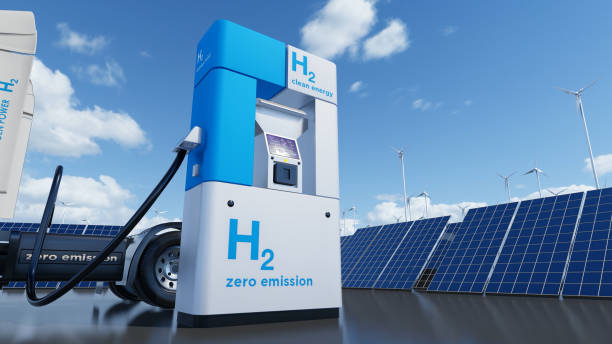The transportation sector is undergoing a major transformation as we shift towards cleaner, more sustainable solutions. One of the most promising technologies in this shift is hydrogen fuel, which has the potential to play a significant role in the future of electric mobility. While battery electric vehicles (EVs) have garnered much attention in recent years, hydrogen fuel cell electric vehicles (FCEVs) are now emerging as a game-changer in the race to decarbonize transportation.
What is Hydrogen Fuel in Electric Mobility?
Hydrogen fuel in electric mobility refers to the use of hydrogen gas to generate electricity, which powers vehicles. Unlike traditional internal combustion engines, hydrogen-powered vehicles use a chemical process known as fuel cell technology to convert hydrogen into electricity. This process emits only water vapor as a byproduct, making hydrogen-powered vehicles incredibly clean and environmentally friendly.
Fuel cell electric vehicles (FCEVs) are equipped with a hydrogen fuel cell stack, where hydrogen gas is stored in high-pressure tanks within the vehicle. When the vehicle is in use, hydrogen is fed into the fuel cell, where it reacts with oxygen from the air to generate electricity. This electricity then powers an electric motor, much like in battery electric vehicles, but with a key difference: FCEVs can be refueled in a matter of minutes, much like conventional gasoline-powered cars, rather than requiring lengthy charging times.
The Benefits of Hydrogen Fuel in Electric Mobility
One of the main advantages of hydrogen fuel in electric mobility is the fast refueling time. While battery electric vehicles typically require several hours to recharge, hydrogen-powered vehicles can be refueled in under 10 minutes, making them a more convenient option for long-distance travel and heavy-duty applications, such as trucks and buses.
Another major benefit is longer range. Hydrogen fuel cells are more energy-dense than batteries, meaning FCEVs can travel longer distances on a single tank of hydrogen compared to what battery electric vehicles can achieve on a full charge. This makes hydrogen fuel particularly well-suited for applications where range is critical, such as long-haul trucking or public transport.
In addition to these advantages, hydrogen fuel is also a cleaner alternative to fossil fuels. FCEVs produce zero emissions, only releasing water vapor into the air, making them a great option for reducing greenhouse gas emissions in transportation. Furthermore, when hydrogen is produced using renewable energy sources, such as wind or solar power, it can be a truly green solution to reducing the carbon footprint of the transportation sector.
Hydrogen Fuel’s Role in the Future of Mobility
Hydrogen fuel has the potential to transform not just the passenger vehicle market but also the broader transportation landscape. Heavy-duty vehicles, such as trucks and buses, are difficult to electrify using conventional batteries due to their weight and energy demands. Hydrogen fuel cells can offer a solution by providing a lighter, more energy-dense power source that is better suited for commercial vehicles.
Several global automakers, including Toyota, Honda, and Hyundai, are already leading the charge in hydrogen-powered electric mobility. These companies have launched fuel cell vehicles like the Toyota Mirai and Hyundai Nexo, which are helping to pave the way for hydrogen’s broader adoption in the automotive industry. Moreover, governments and businesses are investing heavily in hydrogen infrastructure, with plans to build hydrogen refueling stations and promote the use of hydrogen for a variety of transport applications.
Challenges and the Road Ahead
Despite its many benefits, there are still challenges to overcome before hydrogen fuel can become a mainstream solution in electric mobility. One of the biggest hurdles is the cost of hydrogen production. Currently, most hydrogen is produced from natural gas through a process known as steam methane reforming, which is energy-intensive and produces carbon emissions. However, green hydrogen, produced using renewable energy sources through water electrolysis, is gaining momentum as a cleaner alternative.
Also, the infrastructure for hydrogen refueling stations is limited in many regions, making it difficult for consumers to access hydrogen fuel. As more investments are made in this infrastructure, however, hydrogen vehicles could become much more practical for everyday use.
Hydrogen fuel in electric mobility holds great promise for the future of transportation. With its zero-emission capabilities, quick refueling time, and long range, hydrogen-powered vehicles have the potential to complement battery electric vehicles and offer a comprehensive solution to reducing transportation-related emissions. As technology improves and infrastructure expands, hydrogen fuel could become a key player in creating a cleaner, greener, and more sustainable future for mobility.




